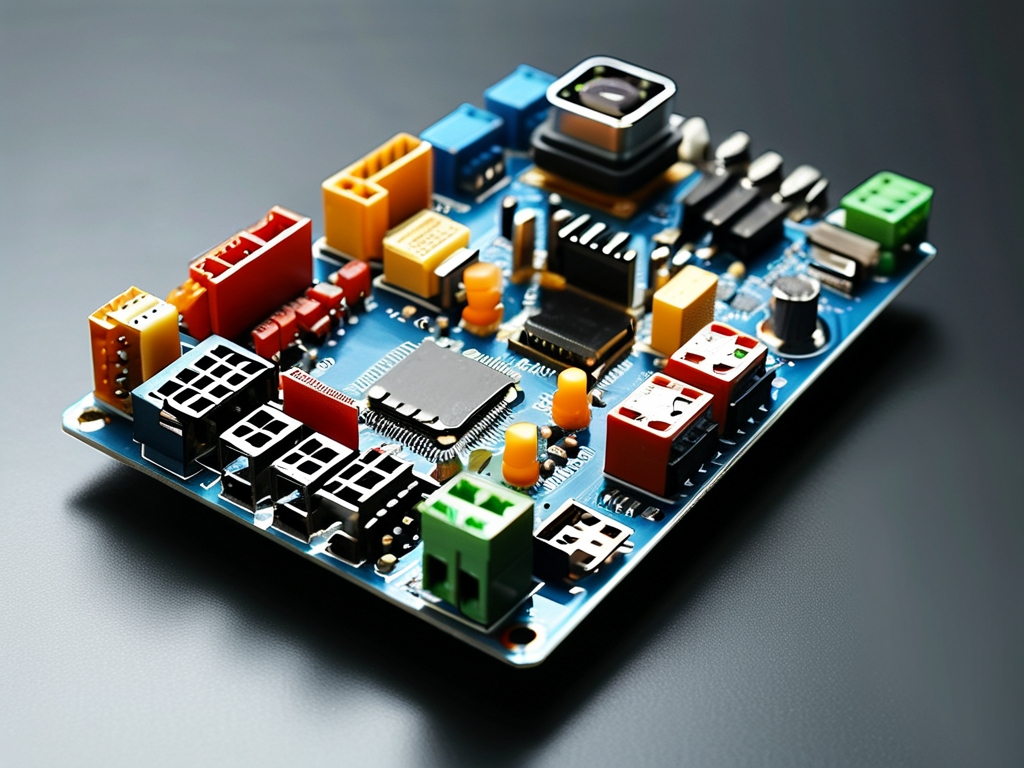The global demand for embedded development boards has surged in recent years, driven by advancements in IoT, automation, and smart device technologies. Among the emerging players in this competitive market, Wenzhou, a city in China’s Zhejiang Province, has carved out a unique niche as a hub for high-quality, cost-effective embedded solutions. This article explores how Wenzhou’s manufacturers are redefining the landscape of embedded development board sales, their competitive advantages, and the factors contributing to their growing influence.

The Rise of Wenzhou in the Embedded Systems Industry
Wenzhou, traditionally known for its entrepreneurship and manufacturing prowess, has shifted focus toward high-tech industries over the past decade. Local companies specializing in embedded systems have leveraged the city’s robust supply chain, skilled workforce, and government support to produce development boards that cater to both domestic and international markets. These boards, which serve as the backbone of devices like industrial controllers, medical equipment, and smart home systems, are praised for their reliability, customization options, and affordability.
One key driver of Wenzhou’s success is its integration of R&D and manufacturing. Unlike regions where design and production are siloed, Wenzhou-based firms often house engineering teams alongside factories. This proximity accelerates prototyping, reduces time-to-market, and allows for rapid iteration based on client feedback. For instance, companies like Wenzhou TechCore and SmartEmbed have pioneered modular designs that let customers tailor boards to specific applications without incurring prohibitive costs.
Competitive Advantages of Wenzhou-Made Development Boards
- Cost Efficiency: Wenzhou’s manufacturers benefit from localized supply chains for components like microcontrollers, sensors, and connectors. This minimizes import dependencies and lowers production costs, enabling competitive pricing.
- Customization: Unlike off-the-shelf solutions from larger corporations, Wenzhou’s suppliers prioritize flexibility. Clients can request bespoke features, such as specialized communication protocols or power management systems, with minimal lead time.
- Scalability: From small-batch orders for startups to mass production for enterprises, Wenzhou’s factories are equipped to handle diverse project scales. This scalability has attracted partnerships with global tech firms seeking reliable OEM/ODM services.
- Quality Assurance: Despite lower costs, Wenzhou’s companies adhere to strict quality standards. Many hold ISO certifications and employ rigorous testing protocols, including stress tests for temperature tolerance and signal integrity.
Market Trends Fueling Demand
The global embedded systems market is projected to exceed $150 billion by 2030, with sectors like automotive, healthcare, and agriculture adopting embedded technologies at an unprecedented rate. Wenzhou’s suppliers are strategically positioning themselves to capitalize on these trends:
- IoT Expansion: Development boards with built-in Wi-Fi, Bluetooth, and LoRa capabilities are in high demand for smart city and industrial IoT projects.
- Edge Computing: Boards optimized for AI inference at the edge, featuring GPUs or NPUs, are gaining traction in applications like autonomous machinery and real-time analytics.
- Sustainability: Energy-efficient designs powered by low-power MCUs (e.g., ARM Cortex-M series) align with global green technology initiatives.
Challenges and Opportunities
While Wenzhou’s embedded board industry thrives, it faces challenges such as intellectual property protection and competition from established hubs like Shenzhen and Shanghai. However, local firms are addressing these issues through innovation and collaboration. For example, partnerships with universities in Hangzhou and Ningbo are fostering breakthroughs in FPGA-based boards and secure embedded architectures.
Moreover, Wenzhou’s government has launched incentives to attract foreign investment, including tax breaks for tech startups and subsidies for export-oriented businesses. These policies, combined with the city’s improving logistics infrastructure, are enhancing its global competitiveness.
Case Study: SmartEmbed’s Success Story
A standout example is SmartEmbed, a Wenzhou-based company founded in 2015. Starting as a small workshop, it now exports development boards to over 30 countries. Its flagship product, the SE-8000 series, integrates dual-core processors with industrial-grade durability, making it ideal for harsh environments. By offering free SDKs and 24/7 technical support, SmartEmbed has built a loyal customer base in Europe and Southeast Asia.
The Road Ahead
Looking forward, Wenzhou’s embedded development board sector is poised for further growth. Innovations in AI acceleration, 5G connectivity, and open-source hardware will likely drive the next wave of products. Additionally, the city’s focus on sustainability—such as recyclable PCB materials—could set new industry benchmarks.
In , Wenzhou’s rise as a leader in embedded development board sales underscores the synergy between regional manufacturing strengths and technological innovation. As global demand for embedded solutions grows, Wenzhou is well-positioned to become a cornerstone of the worldwide electronics ecosystem.









